Our Approach to Climate Content
Published 11-18-22
Submitted by Meta

At Meta, we understand that critical challenges like climate change lead to complex discussion across our apps. Much of that discussion is the type of expression and debate that is essential to building consensus and finding solutions to climate change. That’s why we take a comprehensive approach to climate-related content that educates and informs people with accurate information while addressing misinformation. We’re working to do this responsibly by protecting freedom of expression, engaging and funding research and prioritizing transparency to inform our approach.
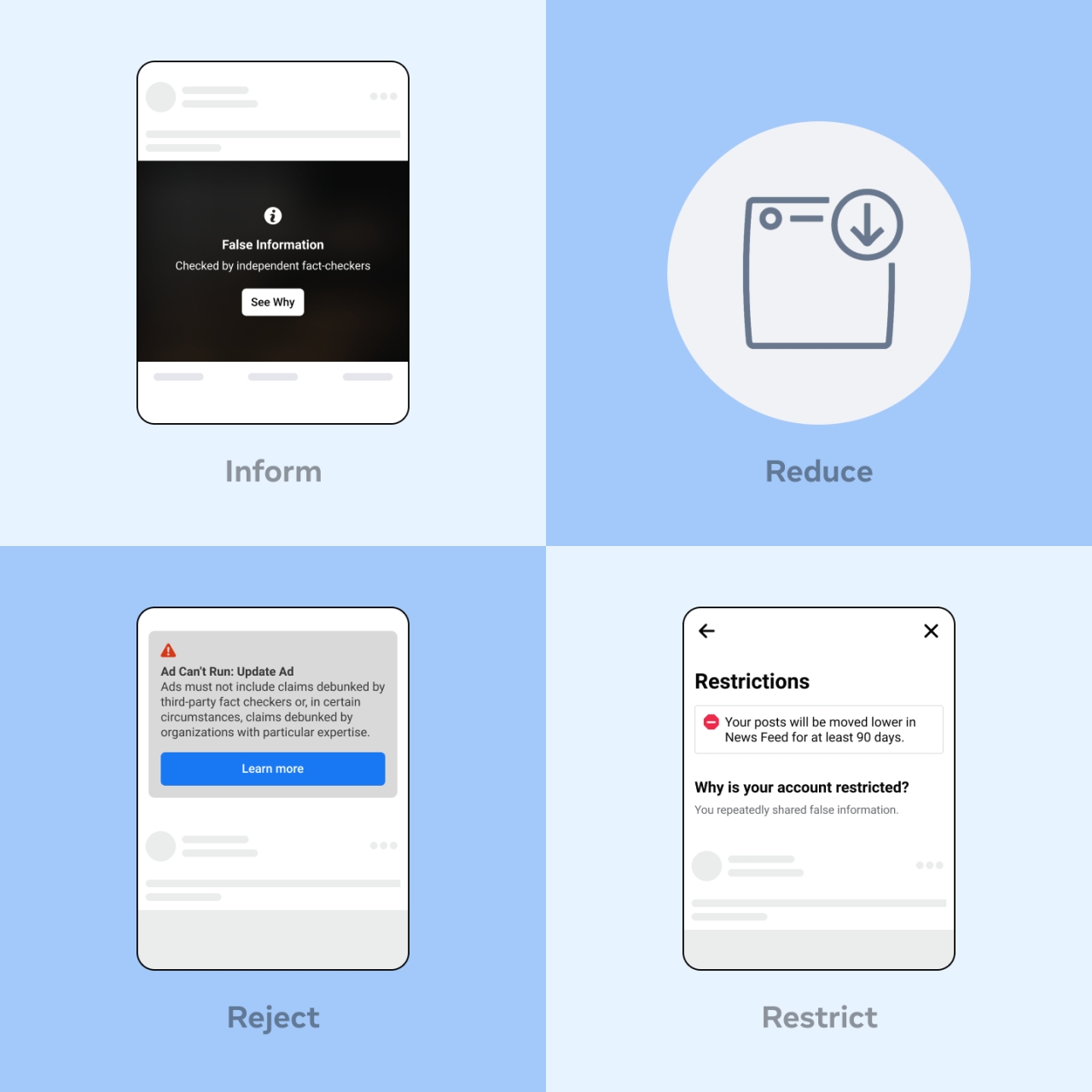
Our Approach to Climate Misinformation
Misinformation makes up a small amount of the overall climate-related content on our apps, and climate change misinformation makes up a very low percentage of total misinformation. Still, that misinformation can spike when the conversation about climate change is elevated, such as during extreme weather events. We take any misinformation on our platforms seriously, which is why we partner with our industry-leading network of more than 90 independent fact-checking organizations to review and rate climate-related content in more than 60 languages.
Our fact-checking partners review and rate a wide range of climate-related claims, including false information that outside experts say undermines the existence or impacts of climate change, misrepresents scientific data and mischaracterizes mitigation and adaptation efforts.
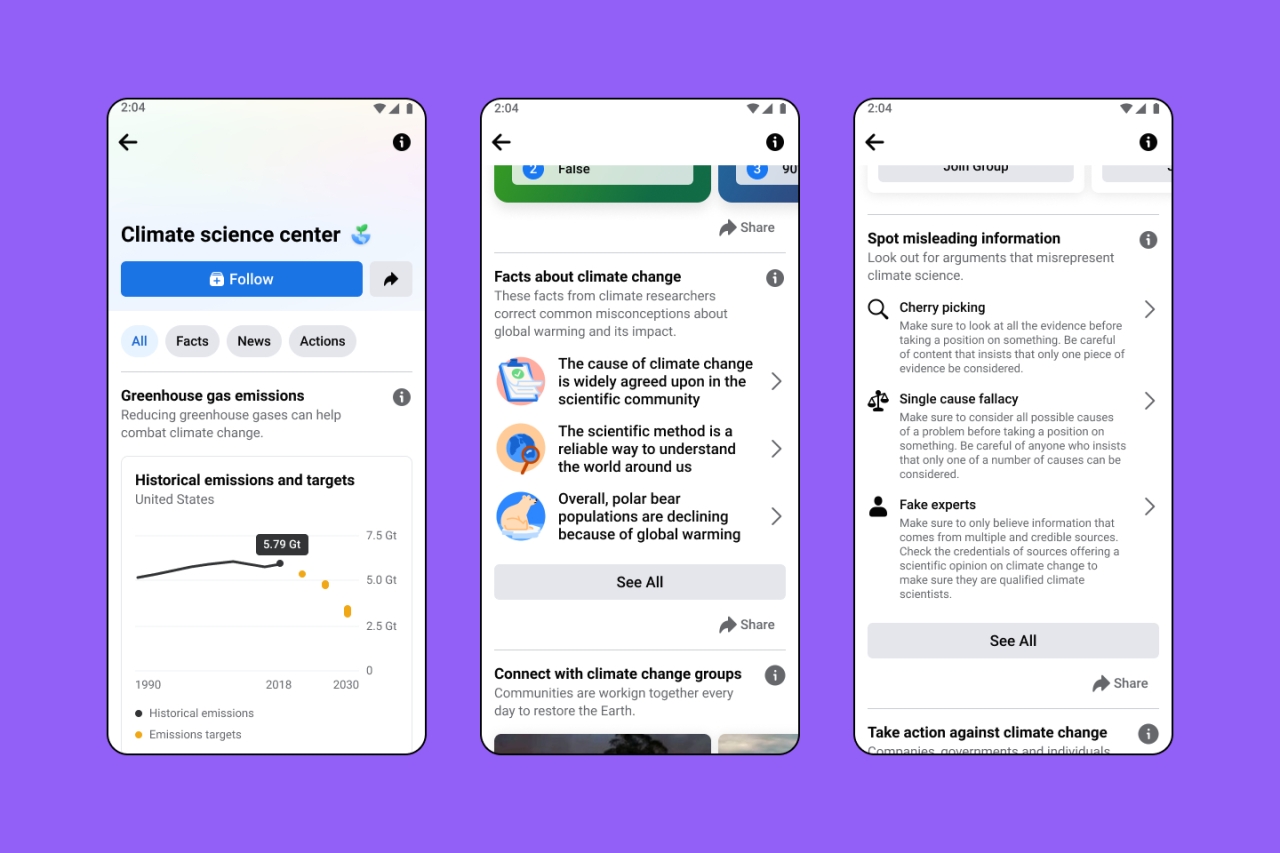
Examples of claims debunked by our independent fact-checking partners include:
When fact-checkers rate content as false, we add a warning label and reduce the visibility of that content so fewer people see it. We don’t recommend content or approve ads that have been rated false by one of our fact-checking partners, and we take action against Pages, Groups, accounts and domains that repeatedly share false claims about climate science. You can read more here about how we enforce penalties against people who repeatedly share content rated as false by fact-checkers.
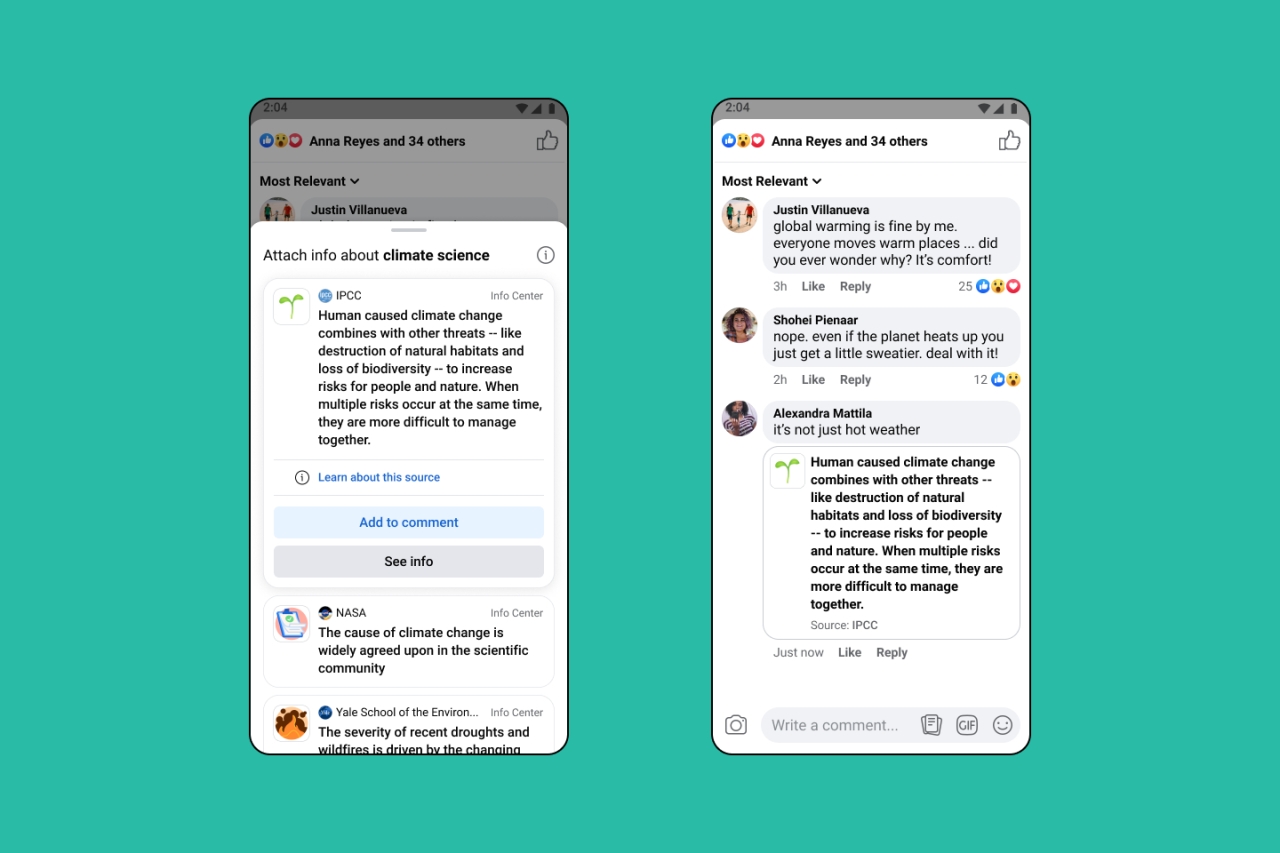
There are additional measures we have taken to improve fact-checkers ability to find and rate climate content:
- Our Climate Misinformation Grant program invests in projects that build alliances between fact-checkers, climate experts and other organizations to support projects that focus on combating climate misinformation.
- We utilize keyword detection to gather climate-related content in one place, making it easy for fact-checkers to find potential misinformation when breaking news hits.
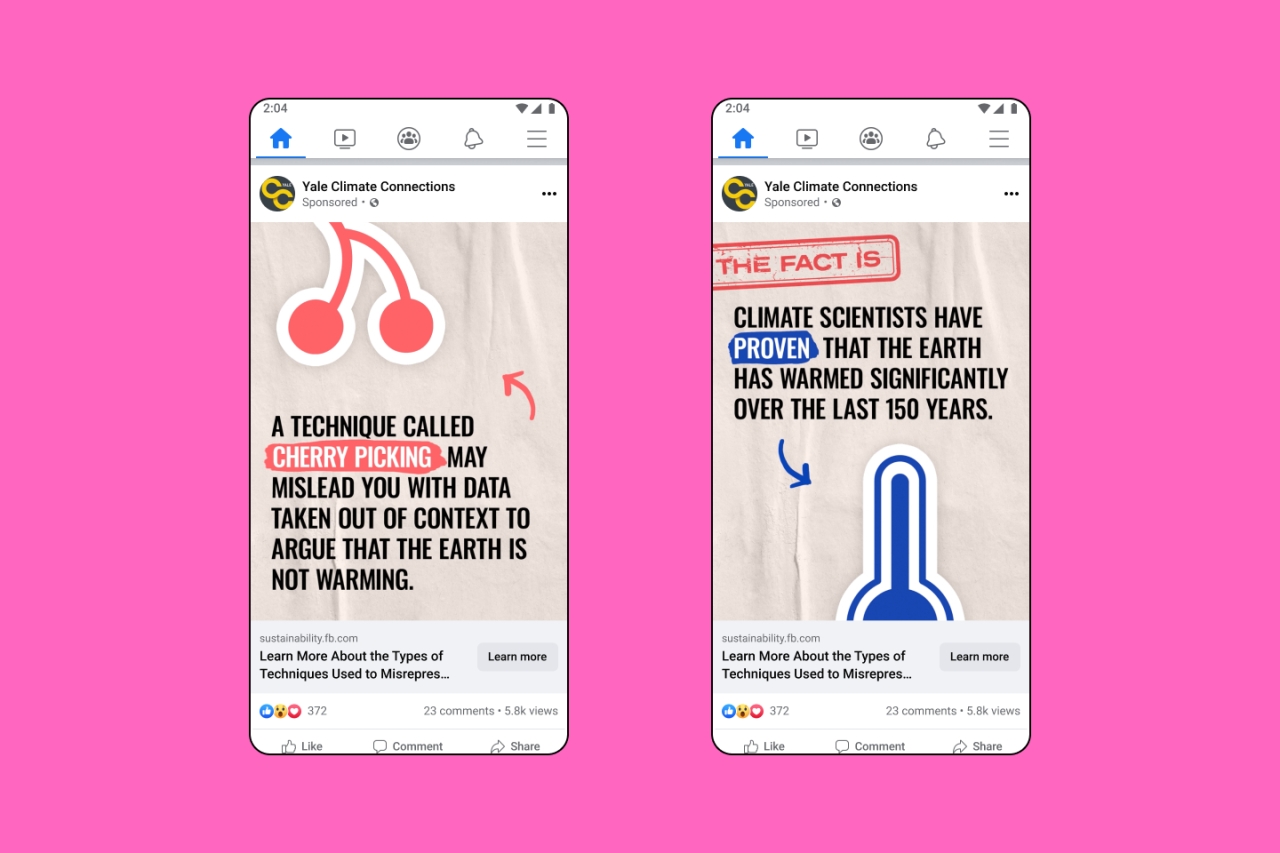
We also understand from experts that some climate information may be misleading or confusing, but doesn’t contain a false claim that can be debunked by fact-checkers. For example, content may use true information or opinion to express uncertainty about the impacts of climate change, distrust in scientific expertise or skepticism about climate solutions. We don’t believe it is our place as a company to penalize this type of speech or referee legitimate debate, which is why we take the approach of educating and informing people with authoritative information.
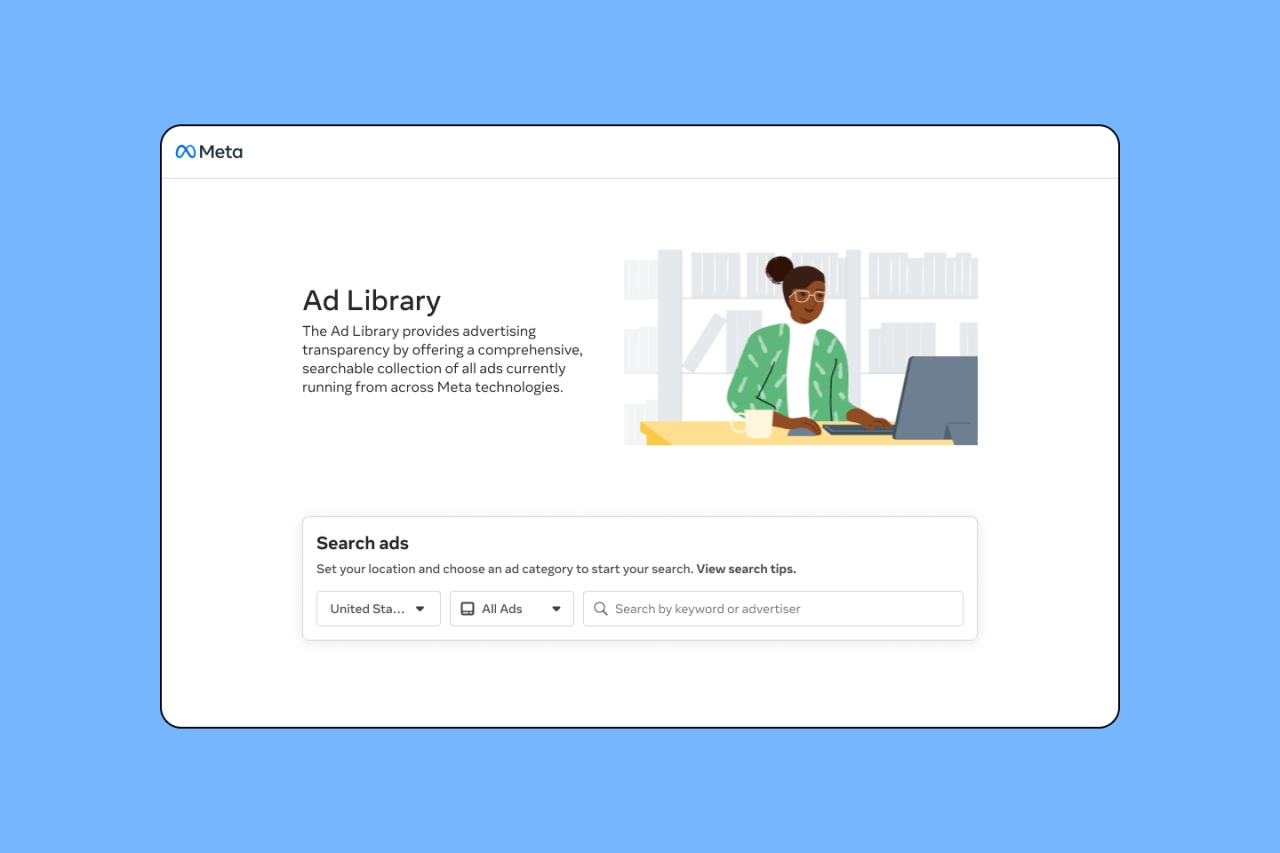
Educating and Informing About Climate Change
As we’ve seen during the COVID-19 pandemic, Meta has an essential role to play during a global crisis in connecting people to accurate, expert information. That’s why we’re using a number of tools, campaigns and partnerships to help educate and inform people about the realities of climate change.
Our Climate Science Center is a one-stop resource available in more than 150 countries, connecting people on Facebook with science-based news, approachable information and actionable resources from the world’s leading climate change organizations. The center includes detailed deep dives that go beyond the basics of climate-related subjects, tips for spotting misleading information and ways for individuals to take action. We continue to expand the availability of the Climate Science Center, and in countries where it isn’t yet available, we direct people to the UN Environment Programme when they search climate related terms on Facebook.
We’re also empowering people to share authoritative information about climate change through tools like our Climate Info Finder, which lets people search trusted information about climate change and attach a link to that information directly into a comment thread.
We’re also sharing reliable information by lifting up the voices of trusted organizations in the climate space. We work closely with partners like Monash Climate Change Communication Research Hub, Cambridge Social Decision-Making Laboratory and Yale Program on Climate Change Communication, providing ad credits, insights and support to help them share reliable information about climate change, and inform users about common techniques used to spread myths about climate science.

Climate Change Resources and Research
At Meta, we’re committed to doing what we can to help make climate-related data and research more accessible. While that work is far from over, we’re continuing to make meaningful progress through innovative tools and research.
Our Ad Library
We’re continuing our work to give an extra layer of ad transparency by requiring all active ads to be available in the public Ad Library, and provide additional information for ads about social issues, elections or politics including those engaging in advocacy around energy and/or climate change.
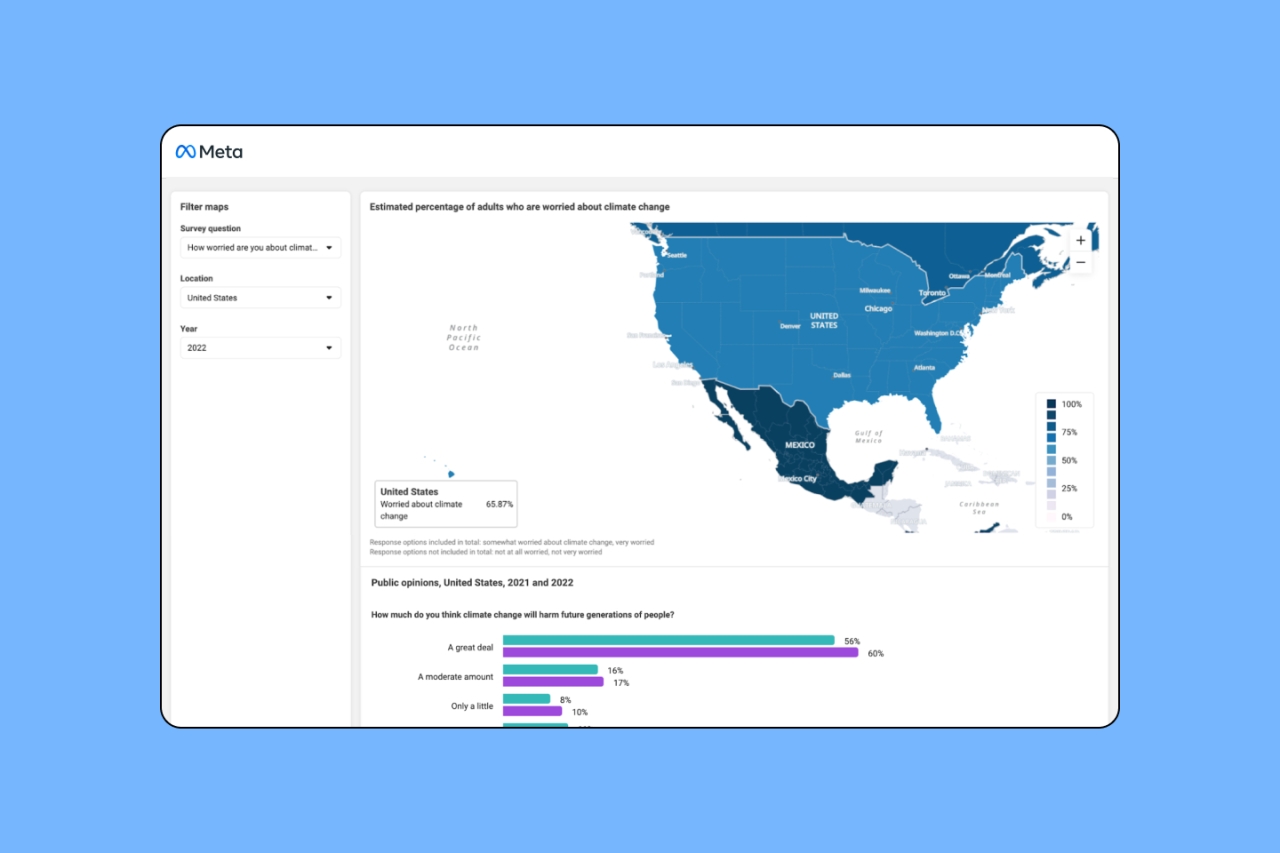
Piloting Community Forums
We believe governance is important to make some of the more complex decisions on our platforms. We’ve partnered with the Behavioral Insights Team to ask users how we should approach climate content that may be misleading but does not contain a false claim that can be debunked by fact-checkers. While community forums and deliberative processes are a new model we’re just starting to explore, the results have helped inform our approach to climate content.
Survey on Global Climate Attitudes
In partnership with the Yale Program on Climate Change Communication, Meta conducts an annual climate change opinion survey that explores public climate change knowledge, attitudes, policy preferences, and behaviors. The 2022 survey includes respondents from nearly 200 countries and territories.
Find more details in our Data for Good website here
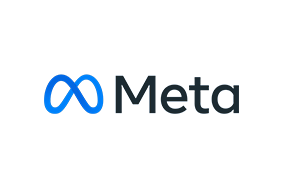
Meta
Meta
Meta builds technologies that help people connect, find communities and grow businesses. We collaborate with community members, climate action leaders and scientists to innovate beyond what is possible today and accelerate action-oriented resources for tomorrow. Meta envisions a just and equitable transition to a zero-carbon economy and is working with others to scale inclusive solutions that help create a healthier planet for all, ensuring that no one is left behind.
More from Meta

